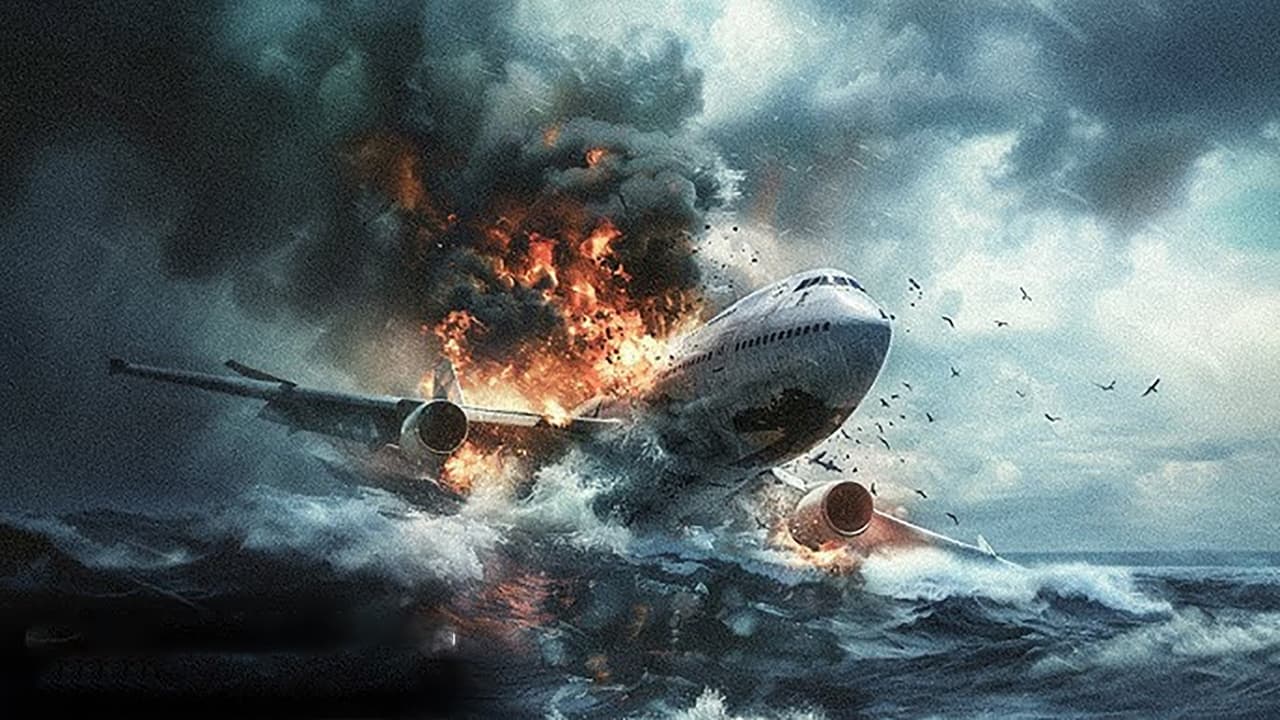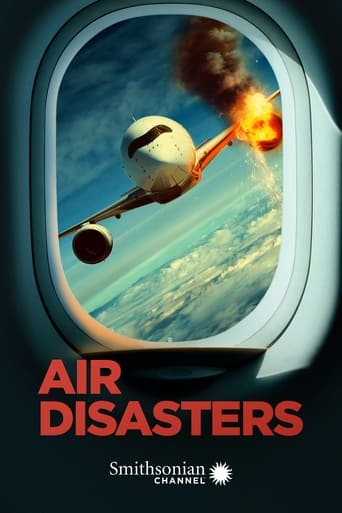Air Disasters Season 5

Harrowing stories of tragedy and triumph are brought to life through official reports, transcripts and interviews with the pilots, air traffic controllers and lucky survivors of history's most terrifying crashes. Widely considered to be the safest form of travel, air transportation is still in its infancy and when midair calamity strikes, the results are often catastrophic. From the cockpit to the cabin, from the control room to the crash scene, we uncover just what went wrong.
Watch NowWith 30 Day Free Trial!
Air Disasters
2011
Harrowing stories of tragedy and triumph are brought to life through official reports, transcripts and interviews with the pilots, air traffic controllers and lucky survivors of history's most terrifying crashes. Widely considered to be the safest form of travel, air transportation is still in its infancy and when midair calamity strikes, the results are often catastrophic. From the cockpit to the cabin, from the control room to the crash scene, we uncover just what went wrong.
Watch Trailer
Air Disasters Season 5 Full Episode Guide
The world's largest commercial airliner is coming apart in midair. Fortunately, the pilots are keeping it all together. The story of Qantas Flight 32, a 2010 passenger flight from London to Sydney, Australia. After taking off from Singapore's Changi Airport for the second leg of its flight, an engine exploded, forcing the crew to return to Changi Airport and attempt an emergency landing.
In August 2007, what should have been a seven-minute island-hop from Moorea to Tahiti, in French Polynesia, ended in disaster. According to eyewitnesses, Air Moorea Flight 1121, a de Havilland Canada DHC-6 Twin Otter, was climbing through 400 feet when it suddenly nosed down and dove into the ocean killing all 20 on board.
Did you know 80% of all air accidents are survivable? See how the aviation industry is working to raise that number as survival stories, including the "Miracle on the Hudson", are recalled.
In November of 2008, XL Airways Germany Flight 888T crashed at high speed into the Mediterranean Sea killing all 7 on board. The Airbus A320-232 was a flight test (or "acceptance flight") which took place immediately following light maintenance and repainting done in preparation for its transfer from XL Airways Germany, which had been leasing it, to Air New Zealand, the owner.
In June of 1980, Aerolinee Itavia Flight 870 was a McDonnell Douglas DC-9-15 that left Guglielmo Marconi airport in Bologna, Italy traveling to Palermo, Sicily, and was in its final descent before crashing into the Tyrhennian Sea near the island of Ustica. All 77 passengers and 4 crew lost their lives in the crash, the cause of which is still debated to this day.
In September of 1989, NOAA 42 “Kermit” flew a research mission into Hurricane Hugo, east of Barbados. On approach, there was a temporary outage of the lower fuselage radar, blinding the crew as to the structure and strength of the storm. Follow the crew through it's hair-raising ordeal as they monitor the landmark hurricane, while flying a plane in turbulence so severe, it puts the mission in jeopardy.
On November 12, 2001, American Airlines Flight 587, enroute from New York's John F. Kennedy International Airport to the Dominican Republic, crashed shortly after takeoff into the Belle Harbor neighborhood of Queens. All 260 people aboard the plane (251 passengers and 9 crew members), as well as 5 bystanders on the ground, were killed. It's the second-deadliest aviation accident involving an Airbus A300 (after Iran Air Flight 655), and the second-deadliest aviation accident to occur on U.S. soil (after American Airlines Flight 191).
On January 13, 1982, Air Florida Flight 90, a Boeing 737-222, crashed into the 14th Street Bridge and plunged through the ice into the Potomac River just two miles from the White House. The death toll reached 74, including four motorists on the bridge, forever changing airport procedure during inclement weather.
In January 2000, Crossair Flight 498, a Saab 340 commuter flight from Zurich, Switzerland, to Dresden, Germany, crashed two minutes after takeoff in the Swiss municipality of Niederhasli. The seven passengers and three crew members aboard the aircraft all died on impact. It was the first fatal crash for the Swiss regional airline Crossair in its 25-year history.
On June 6, 1971, Hughes Airwest Flight 706, a Douglas DC-9-31, enroute from Los Angeles, California, to Salt Lake City, Utah, collided in mid-air with a McDonnell Douglas F-4 Phantom II, of the U.S. Marine Corps, over the San Gabriel Mountains, near Duarte, California. The F-4 pilot and all 49 passengers and crew on board the civilian airliner died; the Radar Intercept Officer of the F-4 survived. Join the NTSB and military experts as they work together to uncover how a fighter jet could collide with a civilian airliner.
Can a generation gap actually cause a catastrophic air disaster? Witness the story of BEA Flight 548, a scheduled passenger flight from London Heathrow to Brussels, which crashed in June of 1972 shortly after take-off near the town of Staines, England. All 118 people on board were killed. The accident became known as the Staines air disaster and, as of 2018, remains the deadliest air accident to take place in the United Kingdom and also marks the highest death toll involving a Hawker Siddeley Trident.
Free Trial Channels
Seasons





































